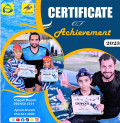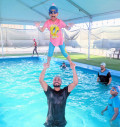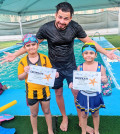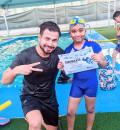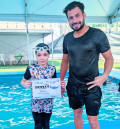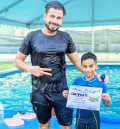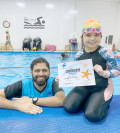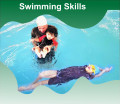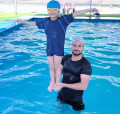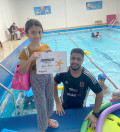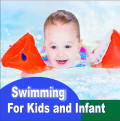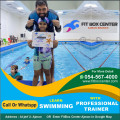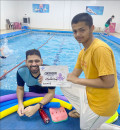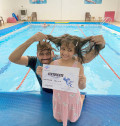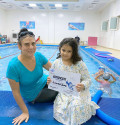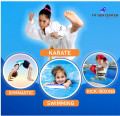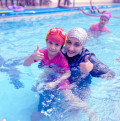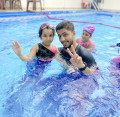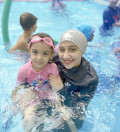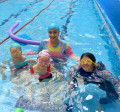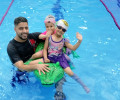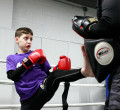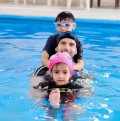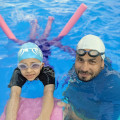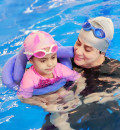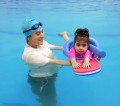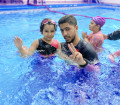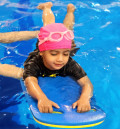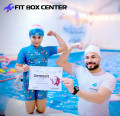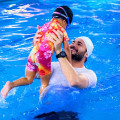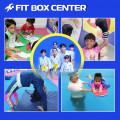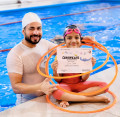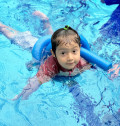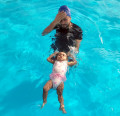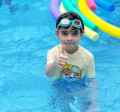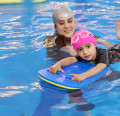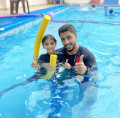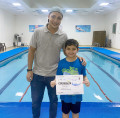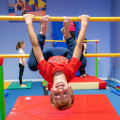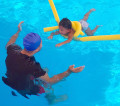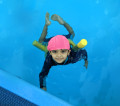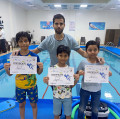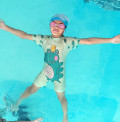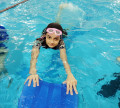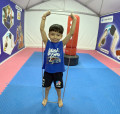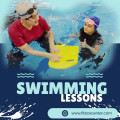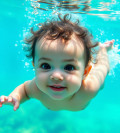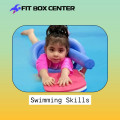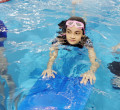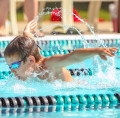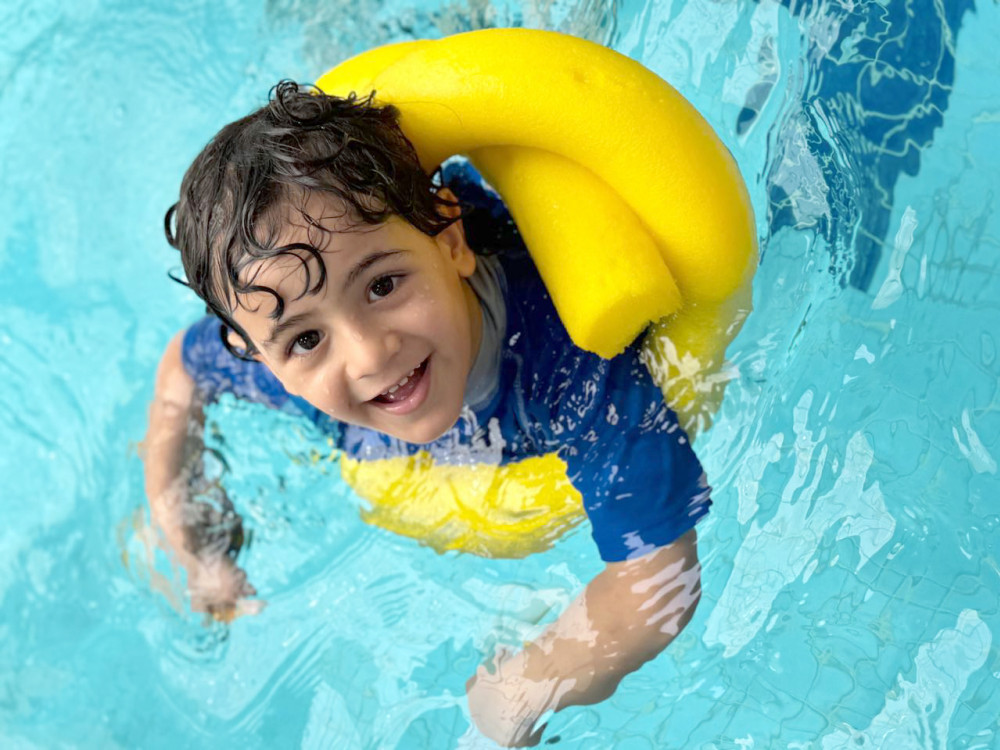
Swimming to kids can foster both physical and mental fitness social skills
2024-09-18 - swimmingPhysical Benefits of Swimming for Kids
Swimming is one of the best full-body exercises that can significantly enhance a child's physical fitness. Let’s break down the key physical benefits.
Full-Body Exercise
Swimming engages almost every muscle group in the body. Kids use their arms, legs, core, and even smaller muscles to navigate the water. This full-body workout is excellent for toning muscles and improving overall body strength.
Improved Cardiovascular Health
Swimming provides a fantastic cardiovascular workout. The repetitive nature of strokes like freestyle or breaststroke helps improve the heart’s efficiency, boosting cardiovascular health in children. Regular swimming can reduce the risk of heart diseases later in life.
Strength and Endurance Development
Unlike other sports that may focus on specific areas, swimming develops both strength and endurance. With each stroke, kids build muscular endurance, allowing them to swim longer distances over time.
Coordination and Flexibility
Swimming requires the coordination of different muscle groups simultaneously. This not only improves a child’s motor skills but also enhances their flexibility as they stretch and extend their limbs with each stroke.
Mental Benefits of Teaching Kids to Swim
The mental health benefits of swimming are just as important as the physical ones. Here’s how swimming helps kids mentally:
Boosting Confidence and Self-Esteem
Learning to swim can be a significant confidence booster for children. Mastering new skills in the water gives kids a sense of accomplishment. As they progress, their self-esteem grows, which can positively impact other areas of their lives.
Stress Relief and Emotional Balance
Swimming is known to reduce stress. The soothing effect of water, combined with the rhythmic movement of swimming, helps children calm their minds. It’s a great way to release pent-up emotions and maintain emotional balance.
Cognitive Development Through Swimming
Swimming doesn't just help the body—it also strengthens the mind.
Enhancing Focus and Concentration
Swimming requires kids to concentrate on their strokes, breathing, and timing. This practice helps improve their focus, which can transfer to other areas, like schoolwork or hobbies.
Problem-Solving Skills
Navigating through water and understanding different techniques helps children build problem-solving skills. Whether they’re figuring out how to swim faster or how to dive properly, these challenges push kids to think critically.
Building Discipline
Regular swimming lessons teach children discipline. They learn the importance of consistency, patience, and practice—all valuable life skills.
Social Skills Gained Through Swimming
Swimming can be a social activity, and this interaction promotes valuable social skills.
Teamwork and Cooperation
In group swimming lessons or team-based water activities, children learn to work together. Whether it's passing the ball in a water polo game or synchronizing strokes in a relay, swimming fosters teamwork.
Communication Skills
Effective communication is key in swimming activities. Children must learn to express themselves clearly with instructors and peers, which helps develop their communication skills.
How to Introduce Swimming to Kids
When it comes to teaching kids how to swim, making it fun and stress-free is crucial.
Creating a Fun Environment
Children learn best when they’re enjoying themselves. Make the introduction to swimming lighthearted by incorporating games and fun activities. This keeps them engaged and motivated.
Start with Basic Water Safety
Before diving into swimming techniques, it's essential to teach kids about water safety. Understanding the importance of safety rules can prevent accidents and build a strong foundation for future swimming lessons.
Common Challenges in Teaching Kids to Swim
Teaching children to swim isn’t without its challenges. However, with a bit of patience, these obstacles can be overcome.
Overcoming Fear of Water
Many kids have a natural fear of water. By starting in shallow water and gradually increasing their exposure, you can help them overcome this fear and gain confidence.
Maintaining Motivation
Children can sometimes lose interest in swimming lessons. Incorporating variety and celebrating small milestones can help maintain their enthusiasm.
Tips for Parents to Support Kids’ Swimming Journey
Parents play a crucial role in encouraging their children to swim.
Regular Practice
Consistency is key. The more a child practices, the better they’ll get. Regular trips to the pool outside of lessons can help reinforce what they’ve learned.
Be Patient and Encouraging
Every child progresses at their own pace. Be patient and provide constant encouragement to keep their spirits high.
Safety Precautions When Teaching Swimming to Children
Safety should always be the top priority when kids are in or near water.
Supervision and Lifeguards
Ensure children are always supervised by an adult, and where possible, swim in areas monitored by lifeguards for added safety.
Using Proper Equipment
Swim vests, goggles, and floaties are essential for beginners. These tools help kids feel safe while learning the ropes.
The Role of Professional Swimming Instructors
While parents can teach their children to swim, professional instructors bring added benefits.
Why Consider Professional Lessons
Certified swimming instructors are trained to teach children in a safe, effective manner. They can tailor lessons based on a child’s specific needs and abilities.
What to Look for in a Good Instructor
Look for a qualified instructor who has experience working with children. A good instructor will be patient, knowledgeable, and able to make lessons fun.
Swimming as a Lifelong Skill
Swimming is a skill that benefits children well into adulthood.
From Childhood to Adulthood
Once a child learns how to swim, it’s a skill they’ll never forget. From recreational swimming to water sports, the opportunities for enjoyment and exercise are endless.
Benefits Beyond Fitness
Beyond the obvious physical benefits, swimming promotes relaxation, improves mental clarity, and even serves as a meditative practice for many adults.
Conclusion
Teaching children how to swim provides them with invaluable physical and mental benefits. From building strength and endurance to fostering self-esteem and social skills, swimming is a life-enhancing skill that serves kids both in and out of the water.Top of Form
Bottom of Form
.




























